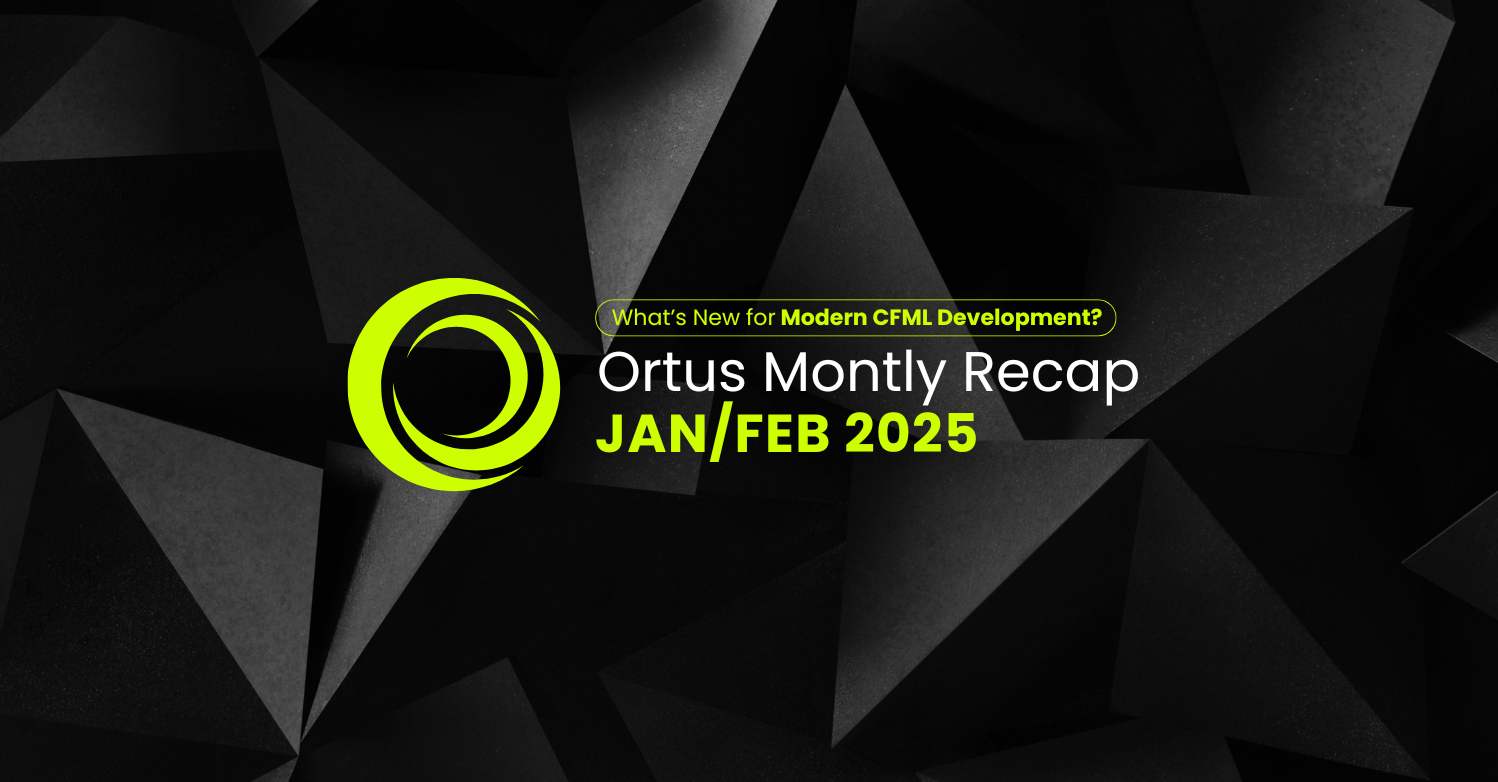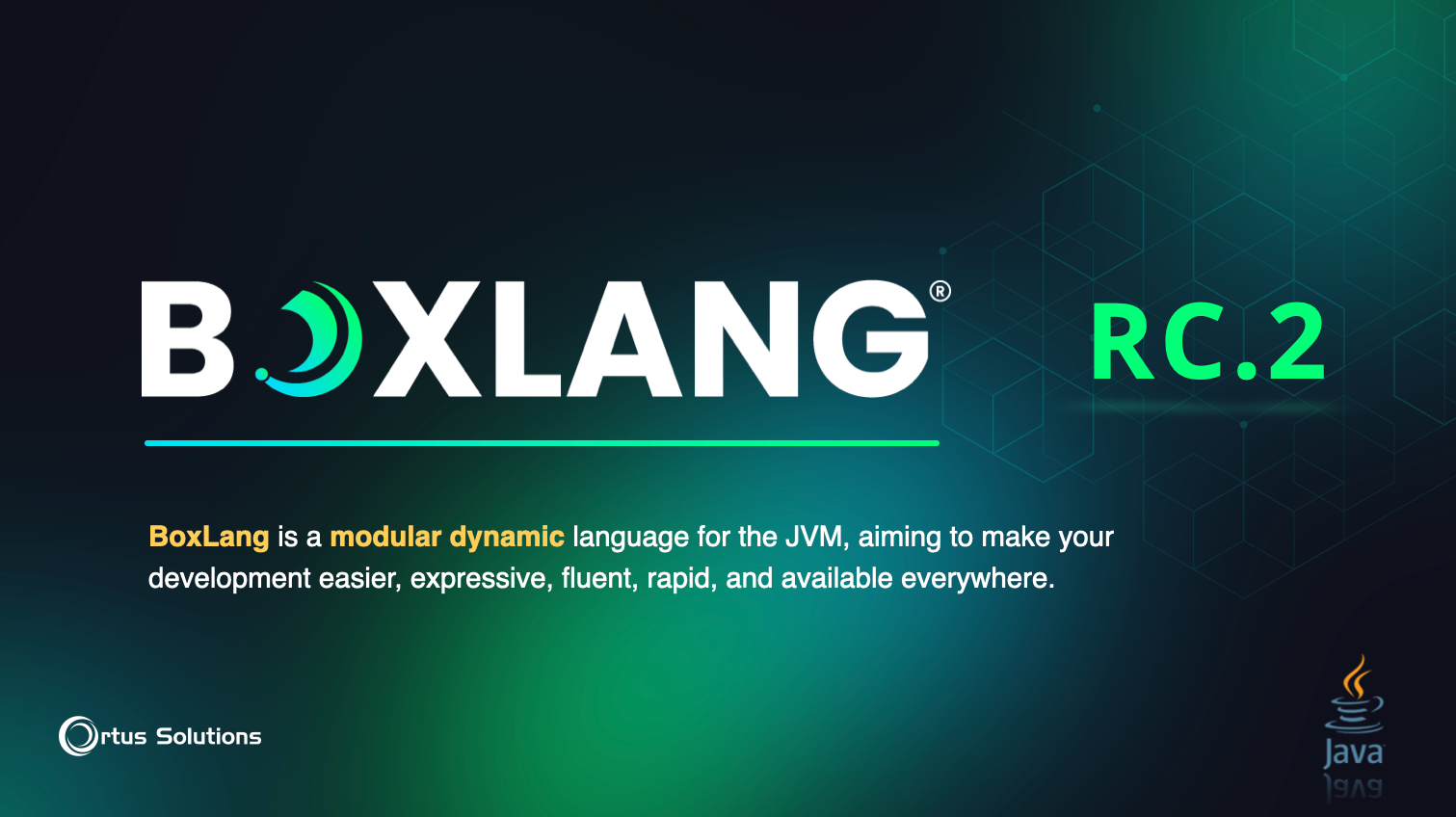More and more people are using CommandBox or our Ortus Docker containers (powered by CommandBox) for production deployments. Commandbox uses JBoss Undertow which is very lightweight and fast, and capable of service traffic just as fast as IIS or Apache. A lot of people ask me about running CommandBox in production and I always say it's fine so long as you follow the same basic lockdown procedures you'd take on any web server. If you have IIS or Apache sitting in front of CommandBox, most of this configuration can happen there, but for people who want drop-dead simple prod servers, here's some quick tips on locking down your CommandBox server.
Server Settings
Most of CommandBox's settings are secure-by-default, but just to mention a couple:
web.directoryBrowsing
Make sure this is set to false so a visitor can't view files on your server in directories with no index.cfm
server set web.directoryBrowsing=false
web.errorPages
We have a default 404 page for static assets which are not found, but consider setting up a custom error page.
server set web.errorPages.404=/404.html
app.cfengine
Consider pinning this to a specific version just so you don't get new releases without getting a chance to test them on your dev servers.
server set app.cfengine=lucee@5.3.3+62
debug / trace
Make sure you don't have the debug or trace flags enabled as they cause extra logging overhead and might unlock debugging features you don't want accessible like Tuckey's status page.
server set debug=false server set trace=false
server.json
{
"app":{
"cfengine":"lucee@5.3.3+62"
},
"debug":"false",
"trace":"false",
"web":{
"directoryBrowsing":"false",
"errorPages":{
"404":"/404.html"
}
}
}
CF Engine Settings
You can automate your CF Engine's settings (Adobe, Lucee) with the CFConfig module. These apply to any server, not just CommandBox, but here are some notable ones:
debuggingEnabled / robustExceptionEnabled
Toggle these to false. They control "Enable Request Debugging Output" in Adobe and "Enable debugging" in Lucee. Robust exceptions is an Adobe only setting.
cfconfig set debuggingEnabled=false to=.cfconfig.json cfconfig set robustExceptionEnabled=false to=.cfconfig.json
inspectTemplate
Set this to "never" if you'll not be doing any hot deploys of code, like Docker for faster performance.
cfconfig set inspectTemplate=never to=.cfconfig.json
adminPassword
Even if you block the web admin (which we'll cover below) make sure there is a solid, non-default password set in your web admins. This can be exploited in Lucee by the CFAdmin tag for instance if someone guesses the password.
cfconfig set adminPassword=supersecure to=.cfconfig.json
generalErrorTemplate
Set to "secure" to enable the most secure error template for your engine.
cfconfig set generalErrorTemplate=secure to=.cfconfig.json
.cfconfig.json
{
"adminPassword":"supersecure",
"debuggingEnabled":"false",
"generalErrorTemplate":"secure",
"inspectTemplate":"never",
"robustExceptionEnabled":"false"
}
Secure Paths via Rewrites
Note: this section is now superseded by CommandBox's built-in security profiles. There is no need to use the custom XML file below. You can read about the secure profiles here: https://commandbox.ortusbooks.com/embedded-server/configuring-your-server/server-profiles
There are a lot of naughty things people can get to by guessing file paths that are web accessible. CommandBox's URL Rewrite engine has an XML format you can use to block paths that hackers shouldn't be touching. I'll cover each section, and then show the full file below.
Any references to /404.html would load a file of that name if you create it. If 404.html doesn't exist, you'll simply get the default 404 handler in CommandBox.
Deny TRACE/TRACK HTTP Verb
The Trace/track HTTP verbs can be used for JS to access HTTP-only cookies by tricking the web server into reflecting the cookies back on a TRACE request.
<rule>
<condition type="method" casesensitive="false" operator="equal">TRACE|TRACK</condition>
<set type="status">403</set>
<to>null</to>
</rule>
Deny Administrative Access
Block all access to your web-based administrator. This is where the majority of vulnerabilities have existed over the years.
<rule> <condition type="request-uri" casesensitive="false" operator="equal">/(CFIDE/administrator|CFIDE/adminapi|CFIDE/AIR|CFIDE/appdeployment|CFIDE/cfclient|CFIDE/classes|CFIDE/componentutils|CFIDE/debug|CFIDE/images|CFIDE/orm|CFIDE/portlets|CFIDE/scheduler|CFIDE/ServerManager|CFIDE/services|CFIDE/websocket|CFIDE/wizards|lucee/admin)/.*</condition> <from>^/(.+)$</from> <set type="status">404</set> <to type="passthrough" last="true">/404.html</to> </rule>
Deny "hidden" files
Files starting with a period like ".htaccess" are meant to be "hidden" and your web server probably shouldn't serve them up.
<rule> <condition type="request-uri" operator="equal">.*/\..*</condition> <from>^/(.+)$</from> <set type="status">404</set> <to type="passthrough" last="true">/404.html</to> </rule>
Deny common config files
There are a lot of common config files in your web root hackers may probe for. Let's keep their hands off!
<rule> <condition type="request-uri" casesensitive="false" operator="equal">.*/(box.json|server.json|web.config|urlrewrite.xml|package.json|package-lock.json|Gulpfile.js|CFIDE/multiservermonitor-access-policy.xml|CFIDE/probe.cfm)</condition> <from>^/(.+)$</from> <set type="status">404</set> <to type="passthrough" last="true">/404.html</to> </rule>
urlRewrite.xml
<?xml version="1.0" encoding="utf-8"?>
<!DOCTYPE urlrewrite PUBLIC "-//tuckey.org//DTD UrlRewrite 3.2//EN" "http://tuckey.org/res/dtds/urlrewrite3.2.dtd">
<urlrewrite>
<rule>
<note>Deny TRACE/TRACK HTTP Verb</note>
<condition type="method" casesensitive="false" operator="equal">TRACE|TRACK</condition>
<set type="status">403</set>
<to>null</to>
</rule>
<rule>
<note>Deny Administrative Access</note>
<!-- These are paths that don't exist on disk, but shouldn't get rewritten since the CF engine treats them special. -->
<condition type="request-uri" casesensitive="false" operator="equal">/(CFIDE/administrator|CFIDE/adminapi|CFIDE/AIR|CFIDE/appdeployment|CFIDE/cfclient|CFIDE/classes|CFIDE/componentutils|CFIDE/debug|CFIDE/images|CFIDE/orm|CFIDE/portlets|CFIDE/scheduler|CFIDE/ServerManager|CFIDE/services|CFIDE/websocket|CFIDE/wizards|lucee/admin)/.*</condition>
<from>^/(.+)$</from>
<set type="status">404</set>
<to type="passthrough" last="true">/404.html</to>
</rule>
<rule>
<note>Deny "hidden" files</note>
<condition type="request-uri" operator="equal">.*/\..*</condition>
<from>^/(.+)$</from>
<set type="status">404</set>
<to type="passthrough" last="true">/404.html</to>
</rule>
<rule>
<note>Deny common config files</note>
<condition type="request-uri" casesensitive="false" operator="equal">.*/(box.json|server.json|web.config|urlrewrite.xml|package.json|package-lock.json|Gulpfile.js|CFIDE/multiservermonitor-access-policy.xml|CFIDE/probe.cfm)</condition>
<from>^/(.+)$</from>
<set type="status">404</set>
<to type="passthrough" last="true">/404.html</to>
</rule>
<!-- Remove this if you don't need ColdBox-style rewrites in your app, or put your custom rewrite rules here. -->
<rule>
<note>Generic Front-Controller URLs</note>
<!-- These are paths that don't exist on disk, but shouldn't get rewritten since the CF engine treats them special. -->
<condition type="request-uri" operator="notequal">^/(flex2gateway|flashservices/gateway|messagebroker|lucee|rest|cfide|CFIDE|cfformgateway|jrunscripts|cf_scripts|mapping-tag|CFFileServlet)/.*</condition>
<!-- This is a special URL that can be enabled with debugging -->
<condition type="request-uri" operator="notequal">^/tuckey-status</condition>
<!-- Used for the Adobe CF 2018 performance monitoring service -->
<condition type="request-uri" operator="notequal">^/pms$</condition>
<!-- Browsers like to send this request and it will get rewritten to /index.cfm/favicon.ico when it really just needs to be a 404 -->
<condition type="request-uri" operator="notequal">^/favicon.ico</condition>
<!-- Ignore any path to a .cfm or .cfml file in a sub directory that has a path info attached. These won't trigger as "real" directories below
since the rewrite filter doesn't know what part is the actual file name. Note, the ses path info servlet filter hasn't fired yet. -->
<condition type="request-uri" operator="notequal">^/.*\.cf(m|ml)/.*</condition>
<!-- Do not rewrite paths that point to real files or directories -->
<condition type="request-filename" operator="notdir"/>
<condition type="request-filename" operator="notfile"/>
<!-- Turn localhost/foo into localhost/index.cfm/foo -->
<from>^/(.+)$</from>
<to type="passthrough">/index.cfm/$1</to>
</rule>
</urlrewrite>
You would use the previous file with this command:
server set web.rewrites.config=urlRewrite.xml




Add Your Comment
(5)
Nov 21, 2019 05:57:15 UTC
by George Murphy
Can we please update files for Lucee also? Not just CFIDE
Nov 21, 2019 08:38:13 UTC
by Brad Wood
George, these files do already include Lucee. If you look, you'll see part of the blocked paths include lucee/admin at the end of the list.
Jul 28, 2020 19:27:38 UTC
by David Levin
Is there a way to check the list or define static assets (like js or css files)? It appears that calling a static file that doesn't exist attempts to execute a ColdBox event and I get an "EventHandlerNotRegisteredException" exception. For example http://127.0.0.1:62680/idonotexist.js
Jul 28, 2020 19:54:08 UTC
by Bradley D Wood
David, that's just how the rewrites work. You can adjust the regex to not apply to those file types. Right now, if the file doesn't exist, we assume the rewrite needs to happen.
Dec 08, 2020 06:28:47 UTC
by Dan Card
You might also need to check if server set web.rewrites.enabled=true One other note in the "Deny Administrative Access" is to add "|lucee/doc" at the end of the list of conditions. This is a setting checked by HackMyCF so it will help get you a "clean bill of health".